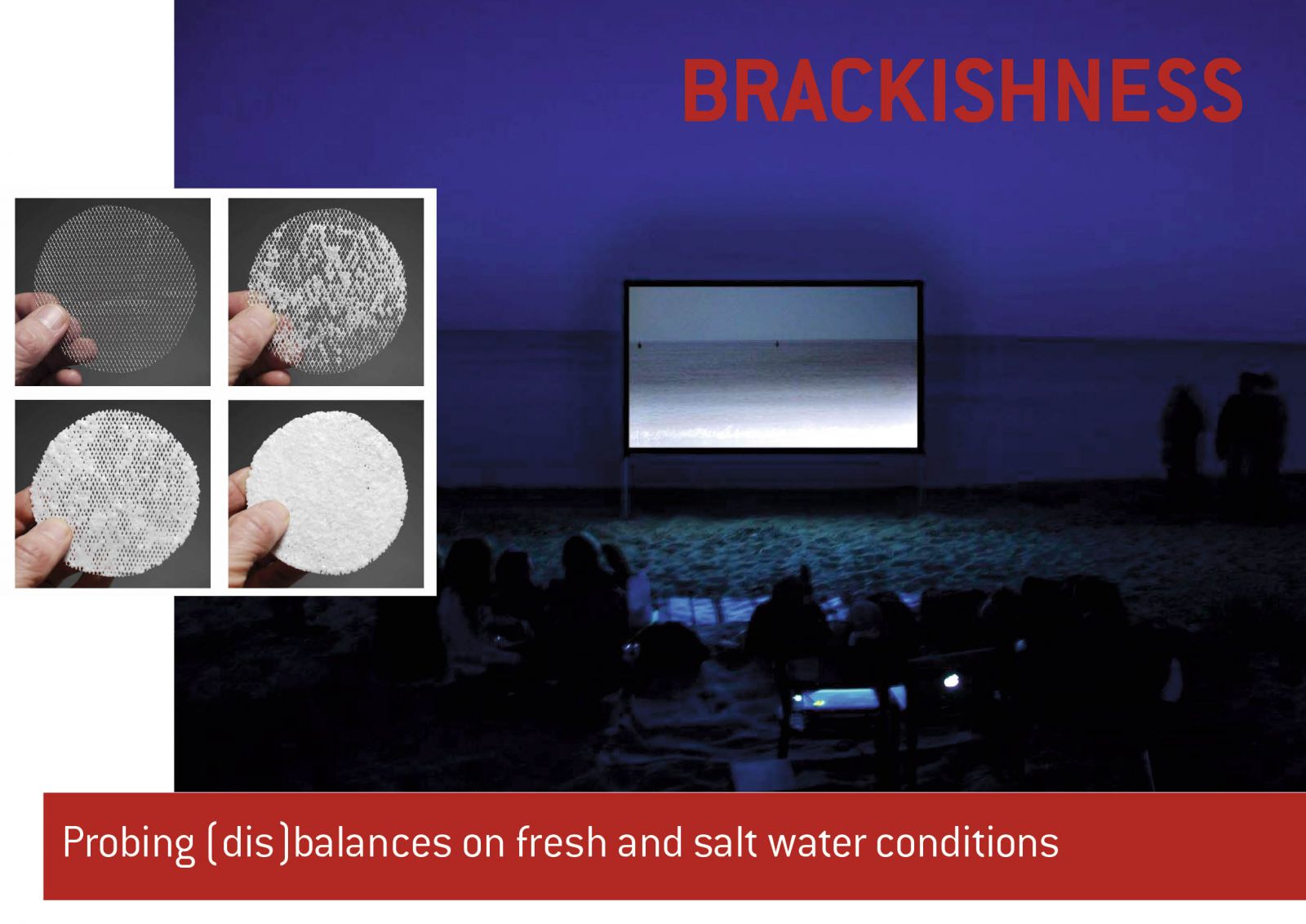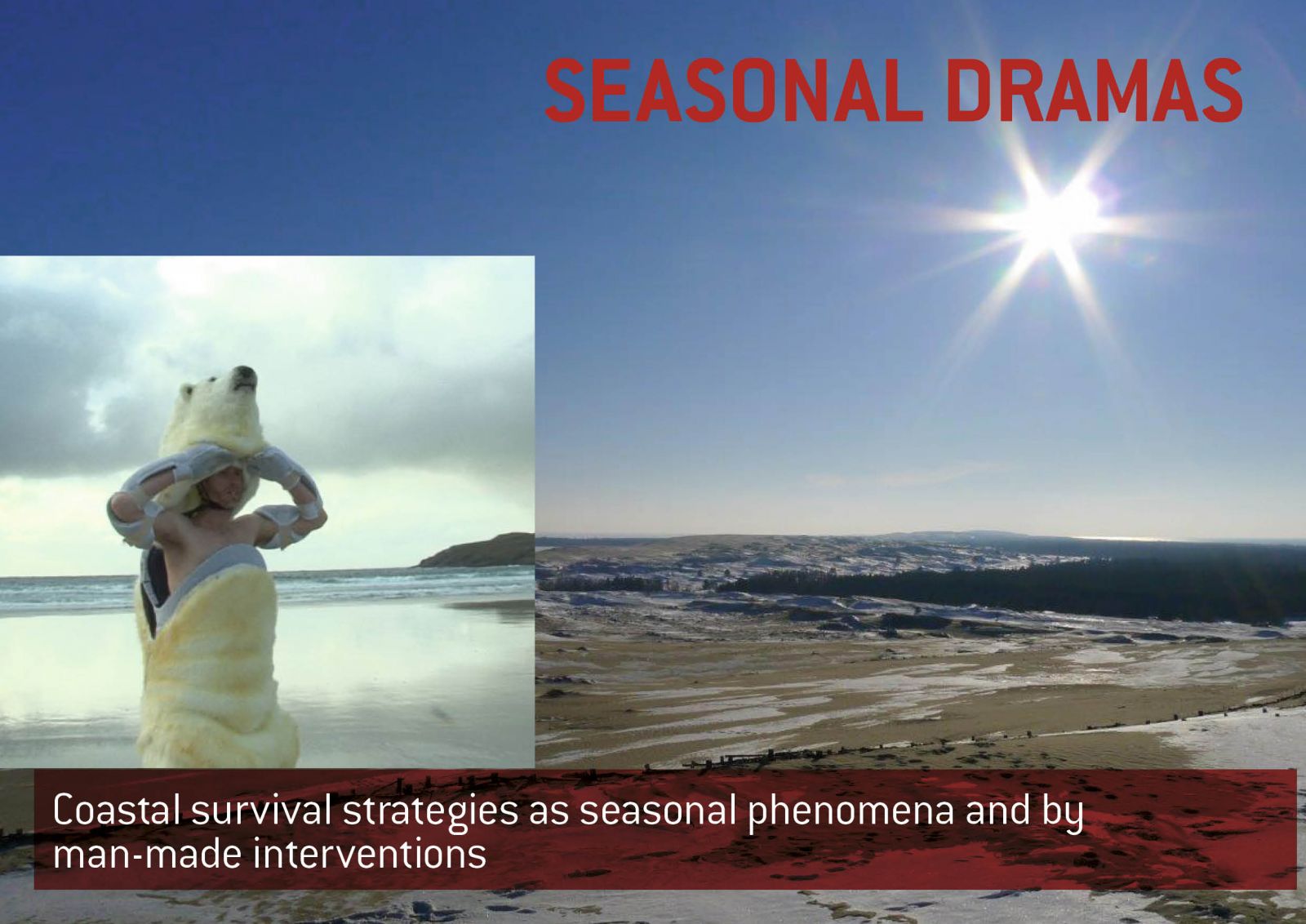OPEN CALL Nida Inter-Format Symposium May 2014
| 2013-12-20 10:15:54
ON FLUX OF SAND AND AQUATIC ECOSYSTEMS
Inter-format Symposium 2014 at Nida Art Colony Lithuania
May 22–25, 2014, Nida, Lithuania
Curatorial Board: Rasa and Raitis Smits (RIXC, LV), Andrew Gryf Paterson (Pixelache, SCO/FIN), Erich Berger (Finnish Society of Bioart, AT/FI), Jacqueline Heerema and Ronald Boer (Satellietgroep, NL). Curator: Vytautas Michelkevičius, Nida Art Colony.
http://nidacolony.lt
OPEN CALL FOR CONTRIBUTIONS TO INTER-FORMAT SYMPOSIUM 'ON FLUX OF SAND AND AQUATIC ECOSYSTEMS'
Please send your short text/audio/video/image proposal for the symposium with a short CV and portfolio (if applicable) by 15th February to: vytautas@nidacolony.lt
If you have questions please contact: satellietgroep@gmail.com
The Inter-format symposium is a main yearly Nida Art Colony event which is a merge between academic conference, art festival and cosy performative meeting of interdisciplinary professionals. This year it is a part of the techno-ecologies project in cooperation with RIXC (Latvia).
At Nida in 2014, the Flux of Ecosystems of Sand, Water and Man will be discussed in depth and performed from sunrise to moonset during lectures, performances, site-specific artworks, workshops and collective dinners. The participative nature of the symposium brings together 30-40 professionals for 3 days and nights to spend time in the intensive and productive sharing and working environment. Artists, curators, scientists, researchers and people from interdisciplinary background are welcome to apply. Selected participants are provided with travel grants (up to 350 EUR), accommodation and catering. However the capacity is limited and if you could also attend on your own expenses, please indicates in the proposal.
Format
You should mention the format of your contribution (performance, lecture, talk, discussion, performative talk or walk, site-specific intervention, conceptual breakfast/dinner, etc.) and the preferred length and settings (inside (auditorium, kitchen, etc.), outside (beach, dunes, forest, town, etc), if any specific equipment is required, etc). Please indicate in the subject line: "Proposal for Inter-format Symposium". To get an idea of the symposium’s nature and atmosphere please check it’s visual history and previous programmes: http://nidacolony.lt/en/projects/symposium
Preliminary topics, questions and keywords addressed:
The symposium is happening in the middle of Curonian Spit (included in the UNESCO World Heritage List) which is a 100km long geological formation (peninsula) of sand, dividing the Baltic Sea with it’s salty water ecosystem, and the Curonian Lagoon with fresh water ecosystem. Therefore the specific issues of the site are raised to discuss the globally relevant problems.
MAN AS ECOSYSTEM: Exploring liminal passages through interplay of man and nature.

BRACKISHNESS: Challenges found by probing (dis)balances caused by human impact on sweet and salt water conditions.

MOVING SANDS: Casestudies on local histories of Curonian Spit, from sand dessert, with XIX century dunes fixation and buried villages to forestation of dunes and green cube.

TECHNOLOGY-MADE NATURE: Predictions and scenarios of XXII century futurological forecasts with historical XIX century interventions in mind, nature as critical inspiration instead of romantic with questions of technological bridge and divide.

SEASONAL DRAMAS: coastal survival strategies with Nida as exemplary case to experience desert and frozen landscapes. Both as seasonal phenomena and by manmade interventions (like UNESCO programs).

FROM COMMUNITY TO COMMUNE TO COLONY: Coping and coexisting with invasive exotic species, both human and natural, as settlers, artists and cormorants (birds), issues of isolation, living in (presumed) secluded communities.

Keywords:
Sea and Lagoon Ecosystems: changing sea levels, algae, pollution, brackishness, borders, marine debris / treasures
Man and Sand-Made Landscape: national park as green cube, moving / dead dunes, migration of birds and tourists, artificial/constructed nature, moose, deer, boar and cormorants
Food, Energy and Sustainability: fishing, foraging, sustainable transport, small-scale farming eg. hydroponics, energy production, supermarket dominance
Under the umbrella of Techno-Ecologies the symposium aims to re-approach cultural, social and ecological sustainability through artistic explorations and cultural innovation. The necessity to focus on the relationship between man and ecosystems builds mainly on the concerns uttered by Felix Guattari in his book Three Ecologies. According to Guattari we should take three crucially important 'ecological registers' into account -the environment, social relations, and human subjectivity. Beyond questions of finite resources and obvious forms of pollution the symposium about ‘techno-ecologies’ attempts to develop sustainable relationships with technology and our living environment.
An informed ethical and philosophical perspective is indispensable if we hope to find less hazardous routes into the future.
The Techno-ecologies project is designed and implemented by cultural organizations: RIXC (Latvia), Baltan Laboratories (The Netherlands), Napon (Serbia), Ars Longa (France) and Finnish BioArt Society (Finland) together with institutional partners: Finnish Academy of Fine Arts (Finland), Nida Art Colony of Vilnius Arts Academy (Lithuania), MPLab (Art Research Lab) of Liepaja University (Latvia), and in collaboration with their associated partners: Van Abbemuseum (The Netherlands), Museum of Contemporary Art Vojvodina in Novi Sad (Serbia), Pixelache / Pixelversity (Finland), Serde (Latvia) and Chant des Possibles (France).
